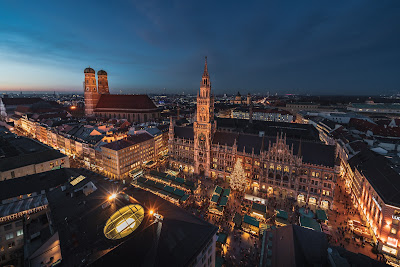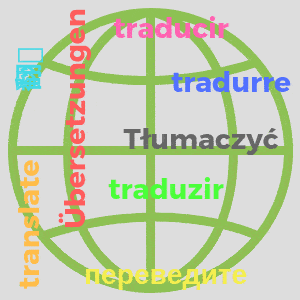Pros and Cons of Living in Munich
Home to the world-famous Oktoberfest, endless greenery, and enough history and culture to keep you occupied for weeks on end, Munich has become a popular destination for expats looking to settle down in one of Europe’s best cities. However, like every city across the globe, Munich has its own unique perks and pitfalls.
If you’re still unsure whether this German city is for you, we’ve put together a list of the pros and cons of living in Munich as an expat, covering everything from whether the city is considered to be a safe place to live and how to navigate the high-tier educational institutions.
Pros of Living in Munich
With thousands of expats choosing to make Munich their home each year, it won’t come as a surprise that there are plenty of pros to living in Munich. Here’s what we found.
1. Plenty to see and do close by
Home to more than 65 museums, Munich is said to be the heart of German history and culture. Whether you’re a history buff or an art lover, Munich’s many museums have you covered to keep your weekends in check. Head over to the Kunstareal, a cluster of art galleries with high-profile pieces from international artists, or over to the Munich Residenz for an insight into 14th-century German history.
For those days when the sun is shining, why not grab some fresh air in the city's many open spaces? With more than 20% of Munich made up of parks and green spaces, including the picture-perfect Englischer Garten, there’s no better way to spend a summer’s day. What’s more, getting away on a day trip or weekend break isn’t difficult when the Bavarian Alps are just a stone’s throw away.
2. Wide range of career opportunities
With the headquarters of BMW, Google, Microsoft, and Siemens in Munich, the city is quickly attracting expats looking for their next career opportunity. While the service sector remains the city’s biggest industry, Munich also sees huge activity in the technology, engineering, and financial sectors, opening up a wealth of opportunities for those that want them.
What’s more, you don't have to speak German fluently to secure a job with one of these major brands. German-based companies are regularly looking for English speakers and international workers to work for them in Munich. Saying that, having some basic German under your belt will always help when it comes to integrating with your co-workers and understanding the ins and outs of your contract as well as day-to-day interactions.
3. You can get by speaking English
With a huge international population, it’s no surprise that the vast majority of people in Munich can speak a good level of English. This is especially true in the city center, where workers are used to interacting with tourists and visitors from across the world. However, while English is sufficient for daily life, learning German is generally a must-do for long-termers.
Understanding and being able to speak a good level of German will unlock a different type of life in Munich. Not only will it make the infamously difficult bureaucracy a lot easier to get your head around, but it will also give you a better chance of meeting and making friends with locals, making your integration into society all the easier.
What makes integration into Munich even easier is its huge population of expats. In fact, it's said that 25% of residents in the city have an international background, giving you the perfect opportunity to find like-minded individuals.
Credits: Daniel Seßler (Unsplash) |
4. There’s a neighborhood to suit everyone
Munich can be divided into 25 separate city districts or Stadtbezirke as they are known locally, giving you a huge choice of places to find accommodation. From the historic heart of Munich, known as the Old Town, to the leafy green suburbs of Neuhausen, there’s something for young professionals, families, or solo travelers. Here are some of our top picks for the best neighborhoods in Munich.
Alstadt. Otherwise known as the Old Town, Alstadt makes up the very heart of the city and is surrounded by Munich’s most famous landmarks. Home to cobblestone streets and medieval architecture, life in the city center is a busy but fascinating experience.
Maxvorstadt. Living in the neighborhood of Maxvorstadt puts the majority of Munich’s most famous cultural landscapes right on your doorstep, including the Alte Pinakothek, Glyptothek, and Egyptian Museum.
Neuhausen. Neuhausen has become one of Munich’s most popular suburbs for families, and there’s good reason for it. With Schlosspark Nymphenburg just moments away and spacious residential accommodations, this neighborhood offers the perfect balance of proximity to the city center and the great outdoors.
Giesing. Once a village of its own, Giesing has slowly been absorbed into the city of Munich. On the outskirts of the hustle and bustle, the neighborhood retains its village-like feel and offers budget-friendly rental prices for those who don’t mind living a little further from the center.
5. Education is top quality
Whether you’re moving to Munich with your family and want to ensure top-quality education for your little ones or are looking to enroll as a student yourself at one of the city’s top-ranked universities, you’re in luck. Munich is home to endless educational institutions, many of which are considered to have a high standard of excellence in teaching.
The majority of expat children tend to enroll in one of the city’s international schools, where they can receive an education in English or their native language. Alternatively, some choose to integrate their children more into the local community by sending them to a public or private school in the city. This has proven to be particularly beneficial for younger children who can quickly adapt to their new environment and pick up the German language at the same time. You’ll also find a range of special needs schools and tutoring services to support your children in any way that they need.
In terms of higher education, Munich is home to several top-ranking universities offering hundreds of different specialties. These include Ludwig Maximilian University, Technische Universitat, and the Munich School of Philosophy. What’s more, higher education at public institutions is considered to be some of the most affordable in Europe.
6. One of the safest cities in Germany
Not only has Munich been named one of Germany’s safest cities, but it's also recently been crowned as the eight-safest city in the world. The overall risk of coming across crime is much lower than average probabilities around the world, and violent crime is scarce in the city. However, that doesn’t mean that petty crime doesn’t happen. As you’d expect in any busy city around the world, there is still a small chance of pickpockets and scam risks, but if you have your wits about you, you shouldn't have a problem.
7. Established and affordable public transport network
For a large city, Munich is incredibly easy to navigate, and we have a well-established public transport network to thank for that. Boasting reliable bus, train, and metro services between the city center and its suburbs, commuting is relatively easy. Plus, if you consider yourself somewhat of a cyclist, the city’s many bike lanes will keep you safe on the road.
To make things easier, Munich is divided into seven different transport zones, all with their own pricing and connections. If you’re living relatively centrally, you’ll only really need to worry about the M zone, which covers the heart of the city and its inner suburbs. Weekly, monthly and annual tickets allow for unlimited journeys for a set fee, and there's a generous discount for students too. What’s more, the S-Bahn, which is the train system connecting Munich and its many districts, tends to run until 1 am and start up again at 4 am, allowing for almost 24-hour transport around the city.
Cons of Living in Munich
Living in Munich isn’t without its pitfalls, including a higher cost of living, tricky bureaucracy, and a cooler climate. Here, we explore a few of the cons of living in Munich.
1. Rental costs are above the German average
One of the main reasons some expats may look past Munich as a place to settle for the long term is its higher-than-average rental prices. While monthly rentals in Munich do not compare to the heady heights of living in European capitals like London and Paris, it is generally more expensive than in other German cities.
For example, if you’re looking for a one-bedroom apartment in the city center, you can expect to pay upwards of €1,350/month. Heading out into the suburbs, this price can drop to around €1,000/month and can cost as little as €750/month if you’re happy to move into a house share.
2. Finding long-term accommodation can be difficult
As is the case with most popular cities across Europe and in Germany, the demand for accommodation in Munich outweighs the supply. This can make finding accommodation here a frustrating process. However, if you start your search well in advance of your moving date, explore as many rental avenues as possible and keep an eye out for online listings, you will find that your stars align, and you’ll find your dream home in the big city.
Munich is home to various accommodation options, including flat shares, studio flats, traditional homes, modern condos, and serviced apartments. Many choose to secure a serviced apartment in Munich for the first few weeks or even months of their time in Munich, which can make things easier when it comes to organizing your longer-term permanent accommodation and other red tape like the infamous Schufa.
3. Understanding German bureaucracy can be frustrating
Not unique to Munich, German bureaucracy can make getting settled in the country a bit of a headache. Everything from registering in your local city, opening a bank account, setting up Wi-Fi, and securing accommodation can require in-person appointments and lots of paperwork, some of which isn’t always translated into English. Here’s a quick checklist of must-do’s to make your transition to Munich a lot smoother:
Anmelden. If you’re planning to stay in Germany for more than three months, you’ll need to register your address within 14 days of moving to your new apartment. On completion of this process, you’ll receive your Meldebescheinigung, an essential document that you will need for things like getting a local sim card and opening a local bank account.
Wohnungsgeberbestätigung. Once you’ve found your accommodation, you’ll need proof of your address, otherwise known as a Wohnungsgeberbestätigung.
Health Insurance. Long-term residents must sign up for the local public or private health insurance system to ensure access to health services like hospitals and GPs.
Bank account. Opening a local bank account will make things like getting paid your salary or setting up accounts with utility providers much easier. Mind, you will need your Meldebescheinigung before you can do this (Except with N26).
4. Cold winters and unpredictable summers
The climate in Munich can be unpredictable, to say the least. While you’re likely to have several warm and dry summer days, there are usually just as many that are gray, rainy, and overcast. Winters aren’t bitterly cold, but thunderstorms, snow, and plenty of rain aren’t uncommon. Saying that, if you’re not searching for an endless summer, and are equipped with an umbrella and a waterproof jacket, the weather in Munich is more than manageable. Especially on those warm summer days, where the city’s close access to the Alps and multiple mountain trails make it all worth it.
 |
| Credits: Malek Boukhris (Unsplash) |
Final Thoughts on Living in Munich as an Expat
Rich with history and culture, boasting an abundance of career opportunities, and a relatively low crime rate, the pros of living in Munich tend to outweigh the cons for many. While you may need a higher than average salary to live a comfortable lifestyle in Munich and an ounce of patience to deal with the often complicated red tape, life in the city offers up a balanced lifestyle, with access to sought-after career opportunities as well as the great outdoors.























